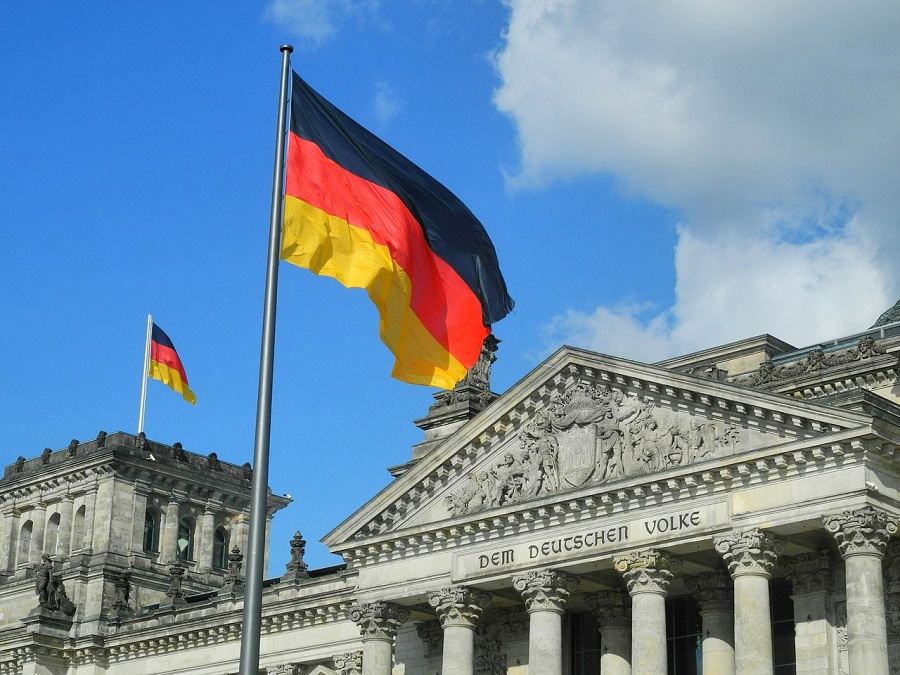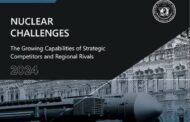“The world has become more unpredictable”
Interview with Foreign Minister Frank-Walter Steinmeier on the European Union, the crisis in Ukraine and the situation in Syria. Published in the Märkische Allgemeine newspaper on 24 October 2016
Minister, you will be joining 400 young people in Berlin today for a discussion about the future of Europe. It is the opening event for a series of discussions throughout Germany that is being organised by your Ministry. Is it a positive side effect of the newly-strengthened position of populists that you are now increasingly seeking to meet and discuss with citizens?
No, there are no positive side effects of populism and nationalism. We were motivated by something completely different. The financial crisis, the migration crisis and certainly the shock about Great Britain have shown us that we must adopt a different approach if we want people to remain confident about the future of the European Union. If many are losing faith that the European Union is the best of all possible alternatives, then something is very wrong indeed! We must contradict this view, discuss people’s concerns, and demonstrate that the EU can deliver, that it does a lot for its citizens, that its focus is much more than internal crisis management.
Have political elites thus far been too ignorant or arrogant concerning the insecurity in some sections of society?
We have not done a good enough job of winning people’s hearts and minds, of fostering the view that Europe’s growing closer together is beneficial to everyone. The fact is that Europe can only exist and grow if it is supported by citizens in the Member States, if it puts down deep roots. In the long run, the EU as an elite project would be doomed to failure. By hosting this series of events, we do not want to promote arcane discussions among experts. Rather, we want to engage with the man and woman in the street, taking our case to them, wherever they may be. I’m not ashamed to say that, with this campaign, we’ll be hitting the road and going door to door, talking to people about Europe. As we do this, we must always remember what is often forgotten, namely that nothing in Europe is to be taken for granted, neither good neighbourly relations, nor freedom of travel, nor student exchanges and studying abroad in neighbouring countries. All this has come about because the generations that came before us worked hard to make it happen.
Is it enough to emphasise the value of freedom and democracy in order to get people excited about Europe?
My generation was very much aware of the fact that, after two hundred years of armed conflict and civil war, it was only European integration that brought stability, growth and, above all, freedom. Knowledge about the historical origins of Europe must not be lost. But this is obviously no longer enough. That is why we don’t want to look back as much as we want to look ahead. Because none of the great challenges of the 21st century can be tackled by one country alone, no matter how large that country is – neither migration flows, nor energy issues, nor the consequences of climate change. What we Europeans still have going for us is that we can best solve the problems we face through joint action!
And when we look beyond Europe, it quickly becomes clear that, if we Europeans do not join forces, then no one in the world will hear our voice.
Considering the problems that many other EU countries are facing, must Germany take the lead?
We certainly can’t shy away from responsibility! Our partners also always expect us to play an initiating role. However, we must not confuse the great amount of trust that we have earned though our hard work with the siren calls for Germany to assume a dominant, lead role in Europe. On the contrary, that is precisely how we would reinforce the fears that our close partners, as well, still have about a dominant German role. Hardly anyone would accept this. Germany must continue to do what it’s good at: yes, we must display initiative, but it will be key for us to seek compromise solutions with both large and small partners. It’s about taking all voices seriously. That is why I am constantly travelling to the Baltic states, to the Benelux countries, and to Scandinavia. This week, I’ll also be visiting Portugal.
For years now, you have been working to bring about peace in Ukraine and in Syria. What is more, the Federal Chancellor has declared that promoting prosperity in Africa is in Germany’s interest. Is German foreign policy overestimating its influence and what it can achieve?
I find it interesting how you phrase this question. When I am travelling, I mostly find that the people I meet expect us to do more, to become even more visible in the crisis regions of this world. We ourselves must determine our proper level of engagement. In clear terms, we are not shying away from greater responsibility. That said, we also don’t take on more than we can handle. We get involved in areas where we can contribute, and we show restraint where we are not in a position to contribute.
I would imagine that the conflicts in Ukraine and in Syria must on a daily basis illustrate the limits of your profession.
Diplomacy is tough work. Reaching solutions often takes a long time. For example, implementation of the Minsk agreements is indeed progressing at snail’s pace. For months now, we’ve been involved in tedious efforts to make progress, and it is all the more frustrating when there is almost none to be found anywhere. That makes it necessary to occasionally recall what the current Mink process has done, despite its many deficiencies: We have been able to prevent the confrontation in eastern Ukraine from escalating into a full-fledged military conflict that is beyond anyone’s control, which could, in turn, escalate into a conflagration in the heart of Europe. That is also why we are so tenacious, and why we keep our eyes fixed on our goal, precisely because it will not be quickly or easily obtained: We want a peaceful solution for the long term, even if this will take time.
You have been very patient with Moscow regarding its role in ending the war in Syria, yet Russia has offered no more than a few hours’ cease-fire. Does that anger you?
Like everyone else, I am shocked by the images coming out of Aleppo. Of course I am shaken by the suffering that is occurring there. Why would I not be? But our shock and our outrage alone will not help the people in Aleppo. That is why we must not accept the situation, or simply issue press statements and make loud condemnations on German talk shows. Anyone who truly wants to change the situation for people in Syria must engage with the parties to the conflict. Political pressure, as well as negotiations with the key actors in the war in Syria: both will be needed to change the situation. A three-day cease-fire in eastern Aleppo is not a solution. But it does signalise that continuation of this brutal war is not a foregone conclusion.
Do you, too, worry that the war in Syria could grow into a world war?
No, that’s not how I see it. But what is happening in Syria is nothing less than a cataclysm. Considering that all the painstaking preparatory work of the US-Russian talks was rendered null and void at the United Nations General Assembly only a few weeks ago, we do at least now see talks beginning to resume. I very much hope that, with guns unilaterally falling silent for several hours and days at at time, this can be turned into a permanent cease-fire, so that people can finally be provided with the essential supplies they need to survive. This hellish war has already lasted much too long.
Are we witnessing a return of the Cold War?
We are reminded of it, because, to us, the distrust between the United States and Russia, and their frustration with one another, bear resemblance to old times. But you would be oversimplifying to draw a direct link. The world of the Cold War was divided in two: countries bore allegiance either to Washington or to Moscow, with distinct red lines between both sides. Our world today has become a great deal more complicated and unpredictable. We see this in the Middle East, where regional actors are no longer solely allied with Moscow or with Washington, but rather are pursuing their own interests. More influence also means greater responsibility, that much is clear. But it is also true that it doesn’t make finding solutions to conflicts any easier.
Is Vladimir Putin unpredictable?
What I see in Russia’s actions is the desire to engage in politics on an equal footing with the United States, and a push to secure Russia’s power and expand its spheres of influence. Certainly, Moscow is also worried that radical Islam may spread from the Middle East via Central Asia to Russia, as well. The southern regions of Russia are, for the most part, Muslim. Chechnya, Dagestan and Ingushetia are again regions of growing concern in Moscow. Yet when I look at what is happening in Aleppo, then I can only say: Even if there were hundreds, or even a thousand or more, of armed Al Nusra troops there, it would still not justify laying waste to a city in which hundreds of thousands of people are living. Actually, Russia, too, should know that there can be no military solution to the conflict in Syria. There will continue to be more than enough arms and fighters who put up resistance and refuse to let the Assad regime determine the future of the country.
In diplomacy, how important are conceitedness, hurt pride and the craving for recognition?
When we work to find solutions to frozen conflicts, then we discover again and again that it’s not all about the plain text of treaties and substantive issues, but that often fear of losing face is what is preventing a solution from being reached. If human feelings weren’t important, then video teleconferences would play a much larger role in foreign policy than they do. Political deals are still made by people, despite all the advances in communications technology. That does not mean personal relationships between the relevant actors can prevent controversy or a conflict. But what has been developed through long-term cooperation does help to keep the channels of communication open in times of crisis, so that the walls of silence do not immediately go up.
* * * * *
Zdroj: http://www.auswaertiges-amt.de/sid_54BB7F043218703E69EF7B04EA8337CE/EN/Infoservice/Presse/Interview/2016/161024-BM_Maerkische_Allgemeine.html
Ilustračné foto: pixabay.com







